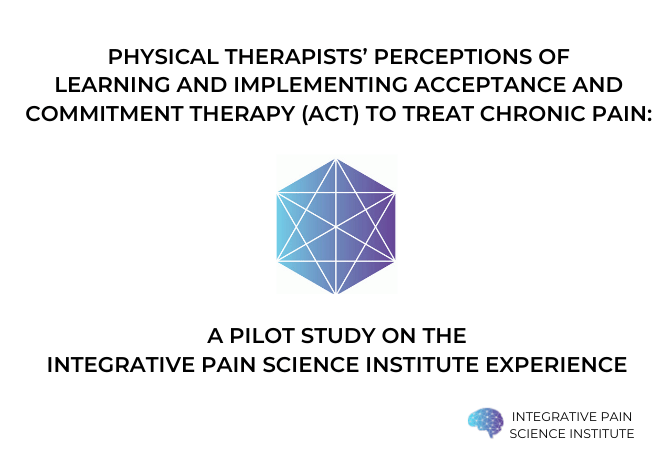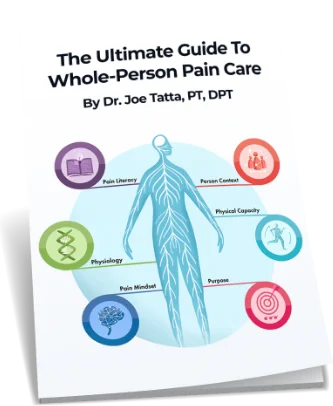How Physical Therapists Can Take Action and Address Diet and Nutrition in Daily Practice

The use of diet and nutrition is gaining popularity among physical therapists, and has been established to be well within the scope of physical therapy practice. Unfortunately, it can be extremely difficult to determine the most effective ways to incorporate these new ideas into existing treatment plans and the large amount of often contradictory information […]
Physical Therapists’ Perceptions of Learning and Implementing Acceptance and Commitment Therapy (ACT) to Treat Chronic Pain: A Pilot Study on the Integrative Pain Science Institute Experience

Chronic pain presents a physical and psychological burden for millions of Americans, and is a global health pandemic. This burden has been worsened by the widespread emphasis placed on a biomedical approach that largely neglects to address the psychosocial components and processes of chronic pain. This omission has led to poorly managed pain, the chronification […]
Can ACT Reduce the Use of Sick Leave and Medical Services in Workers at Risk for Long-Term Disability?

Sitting, standing, or walking for long hours. Hammering, drilling, brooming. Pushing or lifting weights. Tending to elderly or disabled patients. Teaching to a large class of children. Most occupations and jobs involve repetitive tasks that may cause physical and mental discomfort with negative impact on health and wellbeing. Physical and mental demands can be particularly […]
Improve Psychological Flexibility, Improve Chronic Pain Treatment at Your Physical Therapy Clinic

Just as a lack of flexibility throughout your musculoskeletal system can limit one’s range of motion, hold an athlete back from performing optimally, and even increase one’s chances of suffering an injury, such limitations in the mind can have a similar affect. Without a good amount of “psychological flexibility”, as it’s called, researchers say both […]
From Yellow to Green: The Advantages of Psychologically Informed Care

As anyone who has ever driven a car knows, road signs and signals speak as much through color as they do with words. And while bolder colors like red and green leave little room for interpretation, a color like yellow cautions us to take a closer look at potential factors that may be cause for […]
Can a Brief Psychologically Informed Training Change Physiotherapists’ Attitudes and Beliefs About Pain and Enhance Psychological Flexibility?

As physiotherapists (PTs) quickly learn after entering the profession, the troubles and concerns of patients with pain often go beyond physical pain. Distress, manifested by fear of movement, anxiety, frustration, or anger, are common in people experiencing persistent pain. Many forms of chronic pain do not respond to pharmacotherapy or invasive procedures. And modern pain […]

